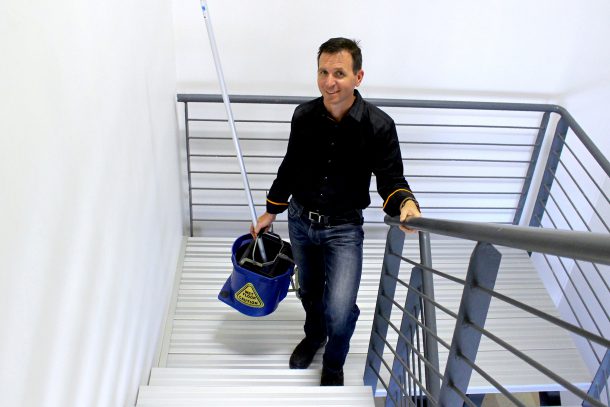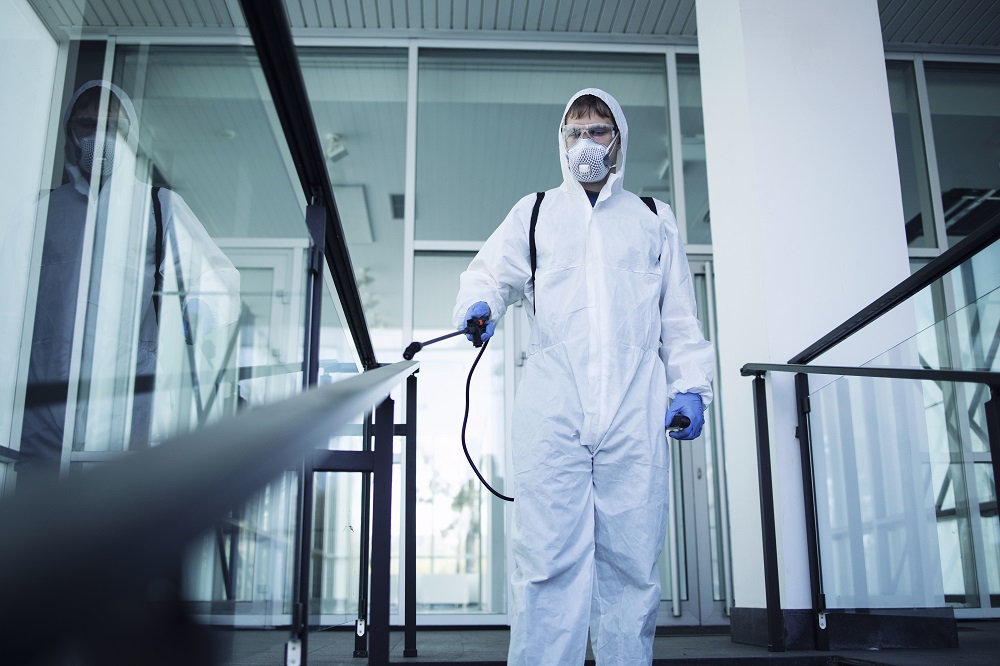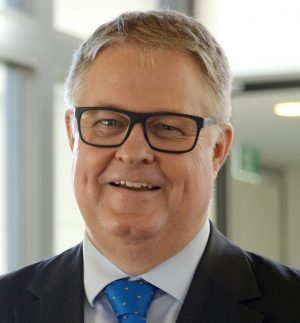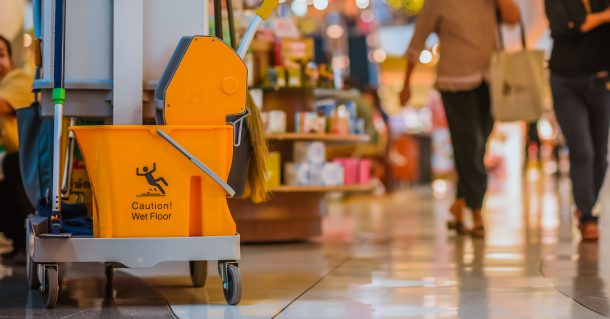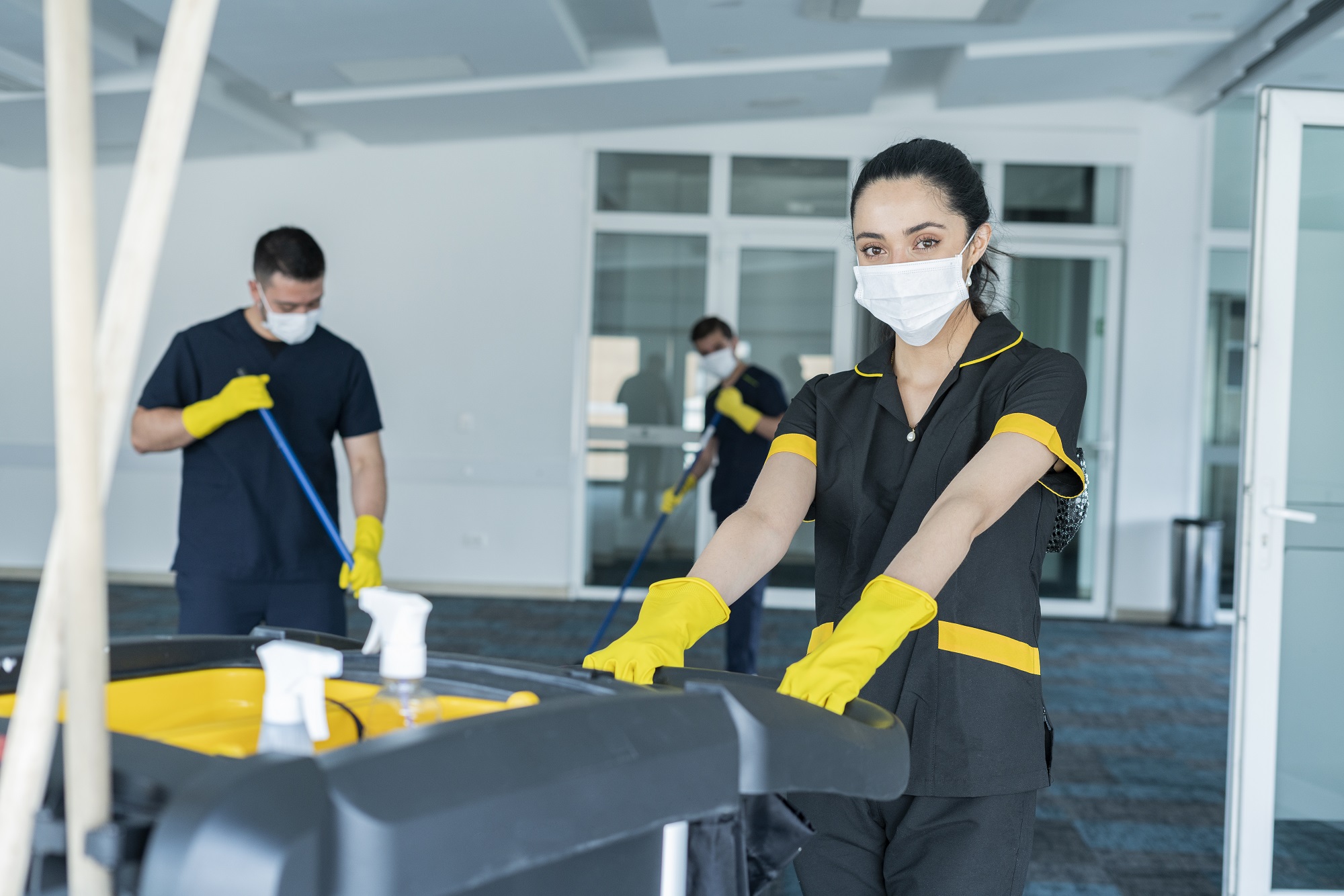
To truly take advantage of a positive change of perception towards the cleaning sector as a result of COVID-19, cleaning companies must ensure their training initiatives assist with infection control and help prepare the next generation of industry leaders. Cameron Cooper reports.
After 20 years of championing the importance of superior cleaning standards and training, Bridget Gardner feels as though she’s finally being heard. All thanks to COVID-19.
“In the past I often felt like I was beating my own drum on cleaning – saying that processes matter, consistency matters, quality matters,” says Gardner, founder, and director of HPC Solutions.
“The response from most people was ‘it’s just cleaning’. Now they’re listening.”
The author of Guide to Cleaning for COVID-19, Gardner says the pandemic has shone a light on the imperative for effective industry training.
She sees a growing trend towards targeted training, whereby supervisors undergo a full Certificate III in Cleaning Operations as a minimum, while on-the-ground cleaners are schooled in the specific tasks they need for their role.
“Cleaners need more ‘micro-learning’ – training in practical tasks that have traditionally been overlooked, but which are really important for infection control, such as how to handle a cleaning cloth correctly,” she says.
Support role
Learning Sphere Training Solutions has also been in demand as a result of the pandemic, advising and supporting governments in infection prevention and controls through advanced cleaning techniques.
Industry programs specialist Luke Bordin says there is a role for everyone to play to help combat health risks and complement training initiatives, whether it is passengers wiping down check-in touchscreens at airports, or teachers getting students to wipe down desks before they move to their next class.
“If we’re going to get on top of it, we can’t just rely on cleaners,” he says.
Learning Sphere has been ramping up its COVID-19-related cleaning courses, including rolling out initiatives with the NSW and Australian governments such as training cleaners for full lockdown cleans for entities such as schools, TAFEs, police stations and government offices.
“For us it’s just been nonstop,” Bordin says.
Other companies have had to further improve their strategies and operations. Tony Gorgovski, CEO of BIC Services, says one of the biggest tasks of the pandemic has been ensuring the business’s 2000-plus staff around Australia, from state managers to cleaners, understand how important it is that they do the right thing to protect each other and their clients.
“Putting people at the frontline of a pandemic was the biggest challenge I’ve faced in my career, and it was the biggest challenge we’ve faced as a company,” he says.
“That’s why we spared no expense or effort to create support networks for our managers, train our staff, and make sure they had the equipment they needed to stay safe and deliver excellent outcomes for clients.”
As soon as the pandemic was announced, BIC Services set up a Pandemic Action Committee to establish roles and responsibilities within the company, as well as ensuring that every cleaner had the PPE and knowledge needed to work safely.
Gorgovski says his team also moved quickly to develop a training video for pandemic cleaning.
“This meant we could provide consistent training to our teams all around Australia,” he says.
“It was a real team effort, and something I look back on proudly.”
One in, all in
In her guide, Gardner urges companies to take a holistic approach to COVID-19 cleaning to ensure everyone is singing from the same hymn sheet.
“Start with your risk-management and business continuity planning and document every step of your processes and how they mitigate these risks. Then train your teams so that everyone is doing the same thing and knows why and what to do.”
Cleaning companies should take the lead with their clients during the pandemic, rather than relying on them to set the cleaning standards.
“Be very proactive, strategic and methodical. Give your clients assurance that you and your teams know exactly what to do”.
For all the talk of better cleaning standards, there is still work to be done in some quarters. Bordin recently oversaw a cleaning trial at a shopping centre, with the designated cleaning company finishing a clean and reporting satisfaction at its efforts.
However, a Learning Sphere analytics team then ran adenosine triphosphate, or ATP, tests on benches, tables, chairs, handrails and other surfaces to check the efficacy of the work.
“The ATP readings were through the roof,” Bordin says. “So, although they had actually cleaned the site, the methods they were using didn’t cut it.”
Such a case study demonstrates the need for superior training processes for many companies operating in the sector, especially in the aftermath of COVID-19.
“There’s still a big skills gap at some companies,” Bordin says.
Plan to succeed
BIC Services is one cleaning company setting the benchmark for standards in response to COVID-19, and it all comes back to planning.
Representatives on the company’s Pandemic Action Committee still meet weekly to discuss recent developments and ensure the business is communicating and actioning government and health authority directives.
“The (committee) has been essential in ensuring that we’re being COVID-safe on every shift and at every site,” Gorgovski says.
He notes BIC Services has always had strict quality control procedures in place, so it has been a matter of augmenting its current procedures with COVID-19-specific measures, “rather than having to come up with new procedures on the spot”.
“Having that focus on quality and safety in place has made it easier to deliver safe buildings to our clients, even with the added pressure of COVID-19.”
Another initiative that has paid off is its BIC Training Academy. Coupled with a nationwide relationship with registered training organisations, the academy has allowed the business to rapidly train its employees on COVID-safe procedures.
“We’re in the process of training all of our cleaners to Certificate III in Cleaning Operations, with that course now containing a section on infection control,” Gorgovski says.
“We’re also training all of our managers to Certificate IV in Cleaning Management, which again has an increased focus on infection control. Most importantly, all cleaning staff are required to complete the Australian Government’s Online Course in Infection Control.”
Gardner endorses a “McDonald’s-style” approach to cleaning training, whereby systems and consistent practices are king, and everyone knows the rules.
“It’s not a case of providing the training then hoping for the best – it’s ‘this is what we do and here are the tools to do it with’. There should be no other options.”
A new dawn
Bordin believes the pandemic has underlined the importance of upskilling cleaners and ushering in a new generation of exciting young industry leaders as managers grapple with infection prevention, technology advances and even the prospect of robotics that will redefine cleaning approaches.
He also urges leaders to get up to speed on new chemicals that perform better than older counterparts, and to take advantage of smaller but more effective equipment.
“They’re the sorts of things companies must consider investing in, because they will get better results.”
According to Gardner, the cleaning industry has been dealing with a brain drain in the wake of government withdrawing training subsidies.
As experienced and qualified personnel have moved on, they’re being replaced with unqualified site supervisors and area managers, often drafted in from other sectors.
“I often meet site managers without core cleaning knowledge and skills,” she says. “It’s assumed that everyone can clean right? Wrong!”
Nevertheless, Gardner is encouraged that many cleaning companies, large and small, have responded to the challenge and sought to do their best for clients, the public and their staff.
With an eye to the future, Gorgovski predicts that all cleaners will ultimately require high-level training in infection control.
“It’s irresponsible for cleaning companies to send cleaners out to jobs if they don’t know how to identify and control infections,” he says.
“The stakes are too high.”
This article first appeared in the March/April issue of INCLEAN magazine
Comment below to have your say on this story.
If you have a news story or tip-off, get in touch at info@3.106.117.80.
Sign up to INCLEAN’s newsletter
